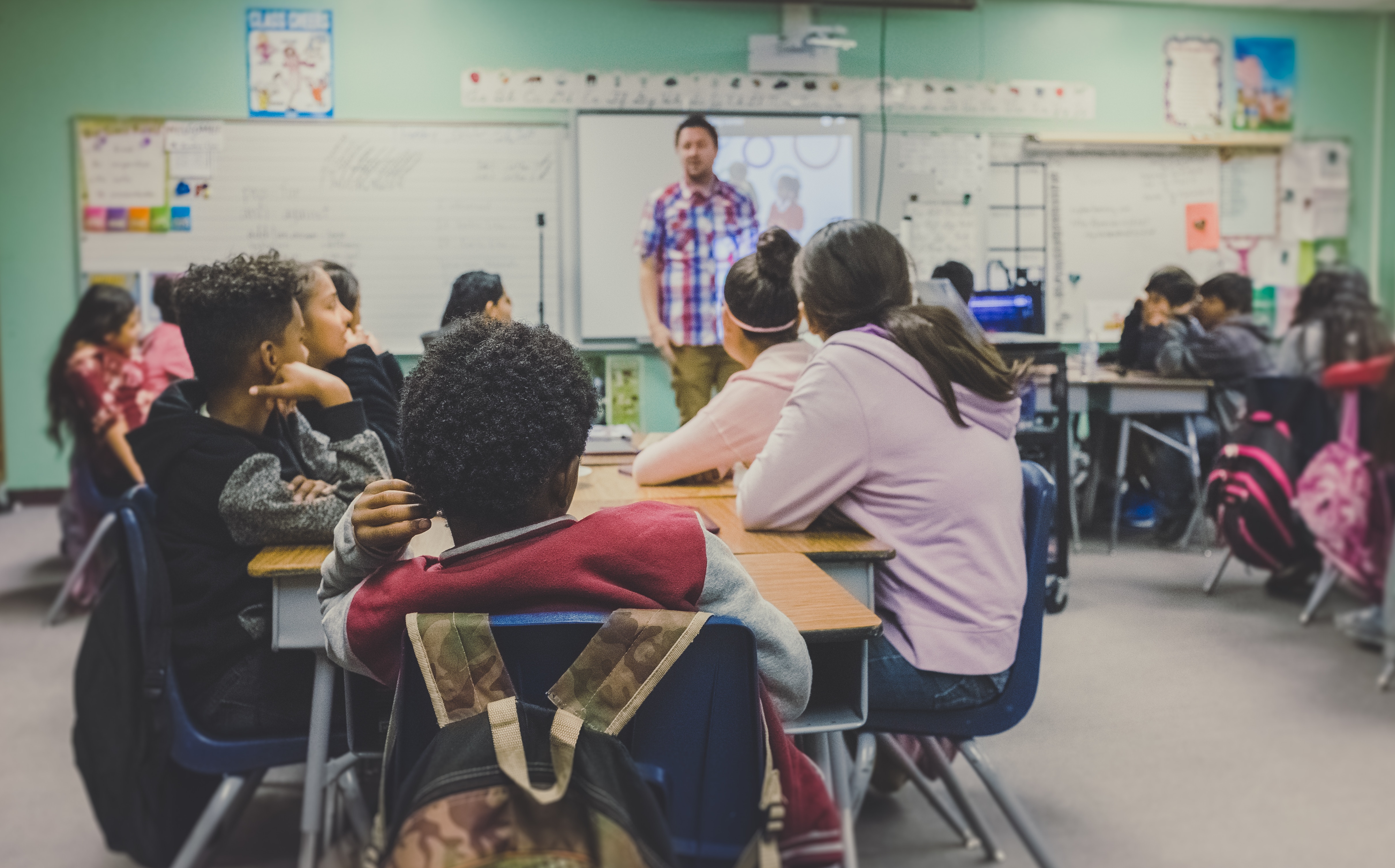Media Contact:
Jaime Koppel, (646) 894-1150
STATEMENT: Federal Commission Responds to Anything But School Safety
Students of color and community organizations from across the country respond to Federal Commission on School Safety findings
**Interviews available with student activists and national education justice leaders**
WASHINGTON, DC — Today, the Federal Commission on School Safety, the Trump Administration’s response to the Parkland tragedy, released its final report. The body, chaired by Secretary of Education Betsy DeVos and including Secretary of Homeland Security Kirstjen Nielsen, Secretary of Health and Human Services Alex Azar and Acting Attorney General Matthew Whitaker, released recommendations that are proven to make school less safe for students of color, LGBTQ+ and gender nonconforming youth, and their communities. The recommendations call for rescinding critical federal civil rights guidance on school discipline, a blueprint for how to arm school staff, and encourage the entrenchment of the school-to-prison pipeline through militarizing and “hardening” schools with military personnel, police, metal detectors, and surveillance equipment. Youth-, parent-, educator-, and community-led organizations across the country reject the commission’s recommendations aimed at “hardening” schools. Such policies will lead to a further entrenchment of racial and gender-based discrimination in school discipline and deny students an opportunity to learn and the freedom to thrive.
“For students like us, this is not what safety means,” said Amina Henderson-Redwan, a youth leader with Voices of Youth in Chicago Education (VOYCE) who testified before the Commission in June. “Safety does not mean more police in schools, more metal detectors and armed teachers. Safety means to get to the root causes of a student’s misbehavior. This Federal Commission on School Safety needs to listen to communities that it’s supposed to represent, communities like mine.”
The following activists and leaders are available for interviews on the report:
-
Jaime Koppel, Deputy Director of Strategic Partnerships, Communities for Just Schools Fund: (646) 894-1150
-
Marlyn Tillman, Parent & Executive Director, Gwinnett SToPP: (404) 402-2076
-
Jonathan Stith, National Director, Alliance for Educational Justice: 202-460-3875
-
Nia Arrington, 18-year-old student and Co-Founder of the Youth Power Collective to end the school-to-prison pipeline.
For years, organizers working with the Communities for Just Schools Fund, the Alliance for Educational Justice, the Center for Popular Democracy and Dignity in Schools Campaign have advocated for an end to discriminatory and exclusionary discipline policies that funnel young people towards prison rather than success. We believe that holistic approaches to student well-being are the way to make our schools more safe, supportive, and inclusive instead of the recommendations from the Commission, which would harm and criminalize youth of color. In response, students and organizers released the following quotes detailing the opposition they had with the report findings.
Jaime Koppel, Deputy Director of Strategic Partnerships, Communities for Just Schools Fund
“These recommendations do not represent the will of the people or the best interests of the majority of this nation’s public school children. We call on states and local school districts to do the the harder work of fostering deep relationships and connection in school by investing in restorative justice, culturally relevant curricula, diverse teaching and support staff, anti-bias training, mental and emotional health supports and more to actually make our schools more safe. Youth and parents have made their vision for safety clear in CJSF’s new report responding to the school safety commission’s proceedings, “Do the Harder Work: Create Cultures of Connectedness in Schools.”
Jonathan Stith, Executive Director, Alliance for Educational Justice
“DeVos and the Commission have completely ignored the voices of the 1.6 million Black and Brown students who attend schools with a police officer but no guidance counselor. Students are calling for police-free schools where their ‘safety’ is not synonymous with their criminalization. Every day they come to school to learn and instead are greeted by metal detectors and by the same police force killing their unarmed peers in the street or separating them from their families. Safety for Black and Brown students doesn’t mean more police abusing them like the #AssaultAtBruslyMiddle in Baton Rouge earlier this year. Neither is arming the very racially biased teacher who has fueled the school-to-prison pipeline an answer to school safety.”
Dmitri Holtzman, Director of Education Justice Campaigns, Center for Popular Democracy
“While rescinding the Federal Guidance on School Discipline does not in any way alter federal civil rights laws, it does send a clear message to millions of Black, Brown, Immigrant, LGBTQ and Transgender students that the Federal Government is turning its back on them instead of proactively protecting their fundamental rights. Together with the other recommendations aimed at “hardening schools” (more military personnel, police, metal detectors etc.) rescinding the Guidelines signals an authoritarian, punitive and oppressive approach to ‘school safety’ which we know will have a the most detrimental effect on children and youth of color, in particular.”
Thena Robinson Mock, Program Officer, Communities for Just Schools Fund
“It is important to make clear that the proposed rescission of the federal discipline guidance doesn’t change civil rights protections in public education. However, the school safety commission’s reversal of evidenced-based guidance aimed at creating safer and healthier schools dismisses proven solutions to improving school climate that have been vetted by educators, students, and parents.”
Marlyn Tillman, a parent organizer with Gwinnett SToPP
“Upon attending the first listening session held by the commission, it was clear that the commission made a disingenuous attempt to engage the public. The timing of the notices were not conducive for parents and youth to be included in a meaningful way on a topic that impacts them directly. I followed up with FOIA requests in an attempt to assure again that the public received proper notice of these sessions. In August, I received a response that there weren’t any records responsive to my requests.Yet more pop up meetings and listening sessions were held. It is clear this commission intentionally beguiled the public.”
Brikaia Hines, Youth Leader, Leaders Igniting Transformation
“After the Parkland school shooting, youth of color made our demands clear in our #YouthDemand petition – endorsed by more than 5,000 people and 40 national and local organizations, in which we demanded: divestment from school policing, investments in schools and teachers, more guidance counselors, protections for families and children against ICE arrests, among other things. DeVos and her commission have chosen to ignore us, but we will be heard. Our civil rights matter.”
Ricardo Martinez, Co-Director, Padres y Jóvenes Unidos
“We often hear that school safety is sidearms and metal detectors. For us, it is a relationship between family and school personnel. We need to open arms to students and families, and hire more mental health professionals.”
Zakiya Sankara-Jabar, National Field Organizer, Dignity in Schools Campaign
“The commission sent a message today that they do not value the lives and well being of all students. Hardening schools will never be the answer. Our coalition of over 100 organizations believes that we can create safe, nurturing schools without pushing students into the school-to-prison pipeline. Regardless, of the decision to rescind the guidance, the law is still the law, and we will fight to protect the civil rights of all young people.”
An Intentionally Flawed & Limiting Public Input Process Leads to Recommendations That Do Not Represent Public Comment
On March 24, 2018, hundreds of thousands of young people, families, educators, and community members came to Washington, D.C. to demonstrate their commitment to a new vision of school safety. Yet the Commission sidelined these key constituencies. They only held public input sessions in four cities–Washington, D.C., Lexington, KY, Cheyenne, WY, and Montgomery, AL — with little to no notice beforehand so that students and professionals often could not make arrangements to attend. The members of the Commission did not even attend these sessions. All were represented by proxy.
In a decision that underscores the Administration’s lack of commitment to protecting students’ civil rights, the school safety commission rescinded the 2014 U.S. Department of Justice and U.S. Department of Education joint civil rights guidance on school discipline that outlines evidence-based best practices and recommendations for school officials to administer discipline in a manner that does not discriminate against students on the basis of race, color, or national origin. The 2014 school discipline guidance encourages schools to improve overall school climate, find alternatives to exclusionary discipline practices (such as out-of-school suspensions and school-based arrests) that lead to school pushout, and ensure that there are sufficient school-based counselors, social workers, and other mental health providers and support services to address and prevent challenges that may occur in schools.
The Commission has completely ignored the calls of millions of young people who have consistently called for an end to the criminalization of Black and Brown students, as well as their communities. Young people, parents, and communities have instead called for holistic approaches to school climate that include mental health care, restorative practices, and the resources they need to thrive.
###
Communities for Just Schools Fund is a national donor collaborative that provides resources in support of community-led organizations that are working to ensure positive, safe and supportive school climates that protect and affirm the inherent cultural dignity of all students and foster the success of all students.
Alliance for Educational Justice (AEJ) is comprised of membership organizations committed to the engagement of youth of color, LGBTQ youth, and their parents – key constituencies deeply impacted by racialized achievement gaps and bias-based disparities in school disciplinary policies.
Center for Popular Democracy promotes equity, opportunity, and a dynamic democracy in partnership with innovative base-building organizations, organizing networks and alliances, and progressive unions across the country. CPD builds the strength and capacity of democratic organizations to envision and advance a pro-worker, pro-immigrant, racial justice agenda.
The Dignity in Schools Campaign (DSC) is a national coalition of over 100 organizations dedicated to dismantling the School-to Prison Pipeline. DSC fights for the human right of every young person to a quality education and to be treated with dignity. We have challenged the systemic use of exclusionary discipline practices that disproportionately impact students of color, students with disabilities, and students who identify as Lesbian, Gay, Bisexual, Transgender, and Queer (LGBTQ), a problem that the U.S. Department of Education’s most recent civil rights data verifies.


